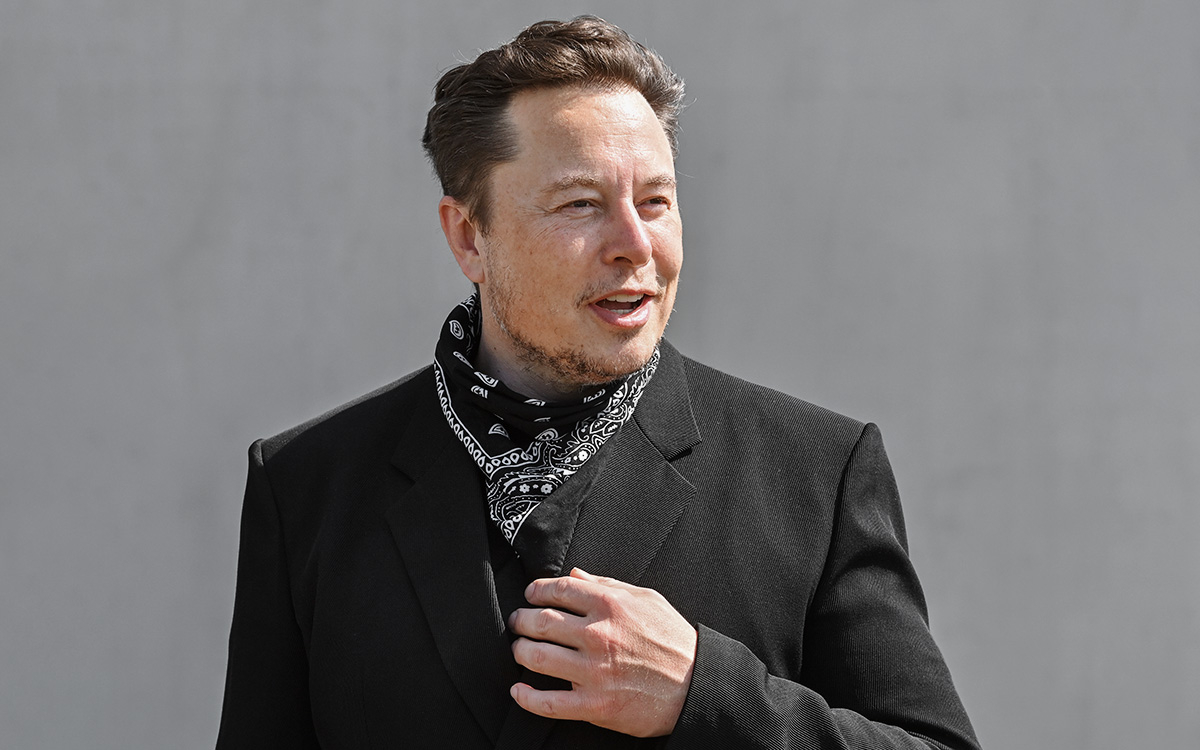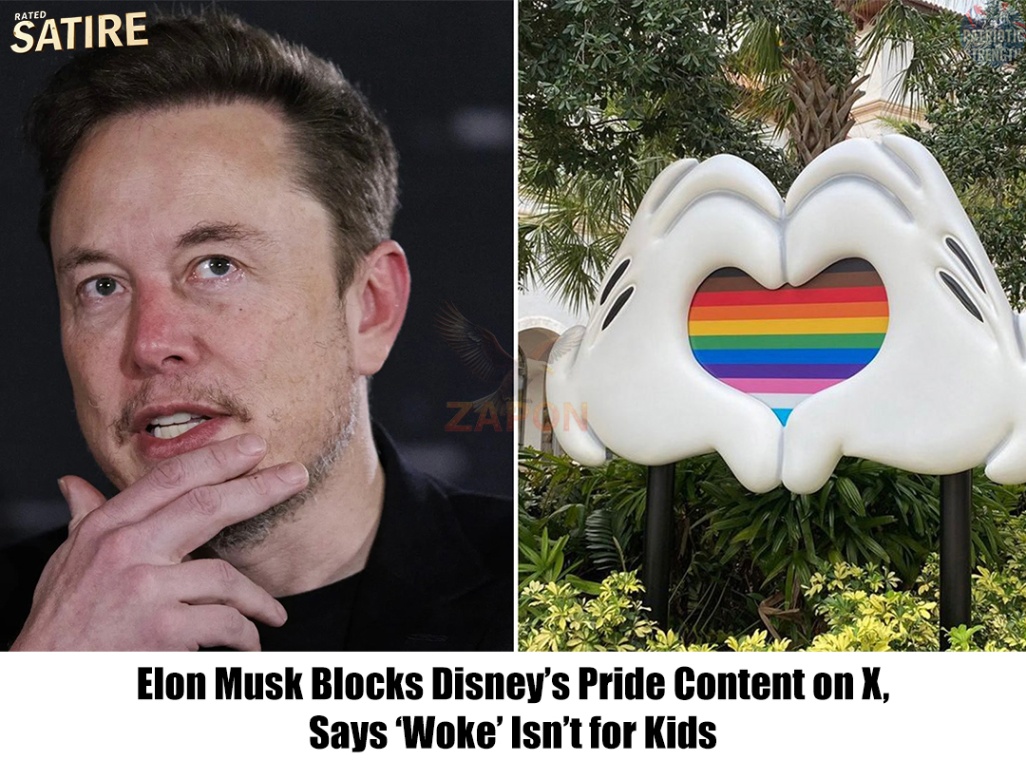Elon Musk Blocks Disney’s Pride Content on X, Says ‘Woke’ Isn’t for Kids
Elon Musk’s recent decision to restrict Disney’s Pride-related content on his social media platform X has stirred controversy and sparked debate about the intersection of social values, media influence, and children’s programming. Musk has been vocal about his belief that “woke” messaging, particularly content involving discussions of gender identity and LGBTQ+ themes, should not be presented to children. His move to ban Disney’s Pride content on X is framed by his assertion that these themes are “inappropriate for children” and should be carefully curated in spaces they might access.

This decision underscores Musk’s growing concerns over what he perceives as “woke” messaging in media targeted at younger audiences. He has expressed reservations about companies, particularly those in the entertainment industry, incorporating social justice themes or content that advocates for diversity and inclusivity, labeling these efforts as “woke” and inappropriate for children. Musk argues that parents should have control over the type of content their children are exposed to and that platforms like X should play a role in ensuring that messaging aligns with “traditional” or “neutral” values for younger audiences.
Many people, however, see this decision as an overreach that could limit positive representation for marginalized groups, especially given the popularity and influence of Disney’s content. Disney has been a notable advocate for diversity and inclusivity, producing content that often includes LGBTQ+ characters and Pride-themed stories aimed at normalizing these identities within the fabric of popular culture. Supporters of this type of representation argue that children benefit from seeing diverse identities reflected in media, as it fosters inclusivity, empathy, and understanding from an early age. This kind of content, they argue, can also serve as a lifeline for LGBTQ+ youth who may not see their experiences mirrored in other aspects of their lives.

Critics of Musk’s decision also emphasize that limiting access to certain types of content because it is labeled “woke” can have far-reaching implications. They argue that restricting certain narratives or identities sends a message of exclusion rather than acceptance, potentially stigmatizing the very people that Pride content seeks to represent. Opponents assert that a nuanced approach is required, one that respects parental preferences without compromising representation for groups that often lack visibility in mainstream media.
On the other hand, supporters of Musk’s stance believe that children’s media should focus on traditional values and refrain from pushing any form of sociopolitical messaging. They argue that entertainment aimed at younger audiences should prioritize universal values—such as kindness, honesty, and courage—without venturing into topics that could be seen as controversial or too mature. From this perspective, children should be given the chance to form their own views on complex issues once they are older and able to critically engage with diverse perspectives.

Proponents of this view argue that “woke” themes could inadvertently expose children to concepts they may not yet be ready to understand or interpret correctly.
As debates around representation and children’s programming continue, Musk’s decision has placed X at the center of a larger cultural conversation. It remains to be seen how Disney and other content producers will respond to these restrictions, as well as how Musk’s stance on social issues will impact his platforms moving forward. With social media increasingly influencing what content reaches young audiences, the balance between representation, parental control, and platform regulation will likely continue to be a point of contention.


